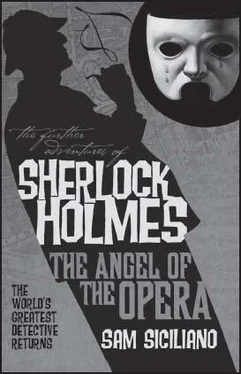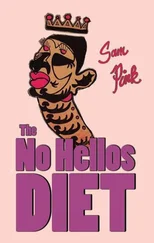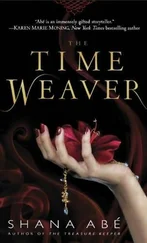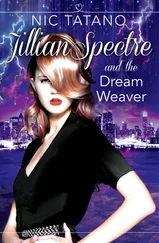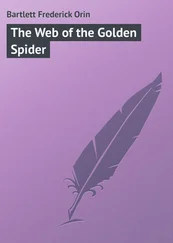Outside the wind had picked up, and the rain seemed ready to become a downpour. “I suppose umbrellas would be out of character,” I said.
“Most assuredly. Ah, Blunt is waiting for us, our Charon with his black barque.”
Across the street, in the pool of light from a streetlamp, sat a battered black hansom. Both driver and horse had seen better days. The black horse’s ribs were showing, his weary misery evident in his drooping posture. The driver’s black mackintosh appeared waterproof, but the rain had pooled and dribbled off his worn top hat. His face was gaunt and white, an odd leer twisting his mouth. The sight reminded me of those grim medieval paintings of Death or the Plague, a hideous skeleton upon his chariot pulled by a skeleton horse.
“Blunt!” Holmes cried. “As we arranged, you will take us to the Running Fox Tavern.”
“Certainly, Mr. ’Olmes.” Blunt’s teeth, what was left of them, were brown and rotting. He coughed once, a sound that made me think of the wasted lungs and tumorous masses I had seen in anatomy cadavers.
“I thought I told you when I last tipped you to give your horse a decent meal.”
“I did, sir.”
“You did not. We cannot continue our profitable association should you persist in abusing your horse.”
I stepped up into the cab, glad to be out of the rain. Blunt snapped his whip, and the cab started down the street, the wheel to my left groaning horribly. It must have been misshapen, for each time the bump or flaw came round, that side of the carriage rose up, then down, with a slight jar.
“This was the best you could do for a cab?”
A streetlamp briefly illuminated Sherlock’s soiled face, the ironic, tight-lipped smile. “Blunt will drive us nearer the rookery than any other cabby, and he will wait for us to return. The less distance we have to walk, the better.”
The cold rain fell in earnest, blurring the gaslight and taking the sharp edges off everything: the storefronts, the countless billboards and signs. The journey was less than an hour, but the rain and fog, the groaning wheel and the regular jouncing to our left, the torturous coughs of the driver, and the thought of the danger and the ugly slum we rode toward, all combined into a waking nightmare, a ride that I shall never forget. Near the end of our journey, the buildings began to appear shabby, the streetlights fewer and further between.
We came at last to the Running Fox Tavern, a decrepit place, the creature on its signboard so worn it resembled a mangy cat rather than a fox. Holmes stepped out first. The rain had abated somewhat, but I knew I would soon be soaked to the skin. The drops felt frigid on my face, and a gust of wind seemed to reach with chilling fingers for my bones.
Sherlock took a coin from his pocket and gave it to Blunt. “We should return in an hour or two. As the night is cold, you may wish to wait inside.”
“Bless you, Mr. ’Olmes.” Blunt stepped down from the cab, then coughed hideously. He was only about five feet tall. He started for the door of the tavern.
“Do not drink so much you cannot drive,” Sherlock said.
Blunt’s laugh sounded much like his cough. “’Ave no fear. It’d take an ’ole night before you’d lose me. Come fetch me when y’re back.”
Sherlock turned to me. “We have about a fifteen-minute walk before us. Whatever you see, whatever anyone says to us, say nothing and continue walking. British law and civilization do not apply within Underton’s boundaries.”
He set off at a resolute pace down the street, and I followed, struggling with my fear. Across the street from the tavern was a tall, stately home, the windows lit up with a rosy, yellowish glow. The edifice was in much better condition than its neighbors and appeared inviting.
I raised my hand and pointed. “That place seems out of character for this neighborhood. It even has two functioning streetlamps.”
Sherlock gave a sharp laugh. “It is a well-known bawdy house, Madam Irene’s. You can have one of the girls for a mere seven shillings.”
“That is the last thing I would want!” My voice was shrill.
“Henry, surely you must know that I would not actually suggest...”
“Forgive me. Yes, I do know that. My nerves are...”
“Well, let us go—the infernal regions await us.” Sherlock turned down an alley.
Within a few yards, the rainy stinking darkness swallowed us up. The black walls rose on either side, only a window or two showing a flicker of light from within. The odor was a dreadful blend: human excrement, a rancid fatty smell, wood and coal smoke, something faintly rotten. I was glad I could not see what I was stepping in. These tenements had no plumbing; the refuse of the people packed into the dark cold rooms ended up in this foul alley. The frigid rain made a constant, gentle murmur.
“What a stench,” I said.
“You should try a visit in the summer. This is nothing.”
“What is it? It seems more than...”
“There is a rendering plant not half a mile from here, and next to it, a slaughterhouse.”
We came out of the narrow alley and turned onto a wider cobblestone street. Here and there a streetlamp cast a feeble halo of rainy light. The buildings were mostly brick, the windows smashed out or boarded up. A group of men huddled about near a lamp, and a few pedestrians, all men in groups of two or more, walked the streets. Somewhere above us I heard a woman wailing.
“This is better than that alley,” I murmured.
Sherlock’s beaked, blackened visage was grotesque in the dim light. “We were safer in the darkness there.”
The air was so damp that the rain seemed to come from every direction, to swirl from the side, to even fall upwards. My face was wet and very cold. I kept my hands in my pockets, my arms pressed to my side. The rain had penetrated the toes of my pathetic boots, and my stockings felt soggy.
Sherlock crossed the street to avoid passing too near any group of men; hence our path zigzagged back and forth. After about five minutes, I saw before us a particularly vile-looking man, much taller than his companions, a dilapidated top hat augmenting his height. His nose was bulbous, a mass of scar tissue covered his right cheek, and his complexion was sallow under the streetlight. I could imagine butter, rather than fat, filling that bloated, fleshy neck.
I turned away from that visage and was relieved (prematurely) when we had left behind us the man and his companions—four short, black, beetle-like creatures.
“’Ey, you two ugly crows! Come back ’ere!”
Something icy slithered up my spine, the muscles in my groin tightening.
“I mean you two stinkin’ turds! Come ’ere— now .”
“Damnation,” Sherlock muttered. With a sigh, he gazed up at the solid brick facade of a building, and then walked over to it. “Keep your back to the wall,” he whispered. “And do not use the revolver until I tell you to.”
I watched the big man and his four compatriots approach us. He had a horrible smile on his face. With them was a mangy little black dog. “I told you nice-like to come ’ere, didn’t I?” His malice was gleeful.
Sherlock’s mouth twitched, his eyes widening. “You stinkin’ lousy swine—you dirty fat pig—I’ll cut open yer stinkin’ rotten guts and feed ’em to yer dog, I will! By God, I will!” As he screamed these words, he withdrew an evil-looking knife, the blade over six inches long, and a leather-covered club.
The dog whimpered and retreated. The big man’s smile had vanished, and his companions backed away. “’Ere now, mate. I...”
“Don’t mate me!” Holmes yelled. “You want trouble—you can have it! Step closer and I’ll cut the fat off you—I’ll slice you wide open!”
Читать дальше
